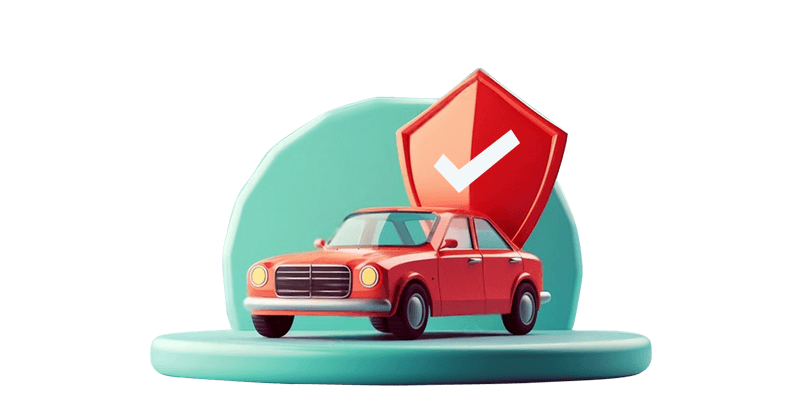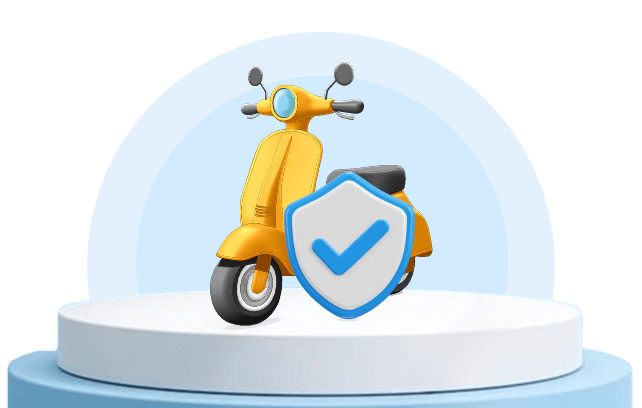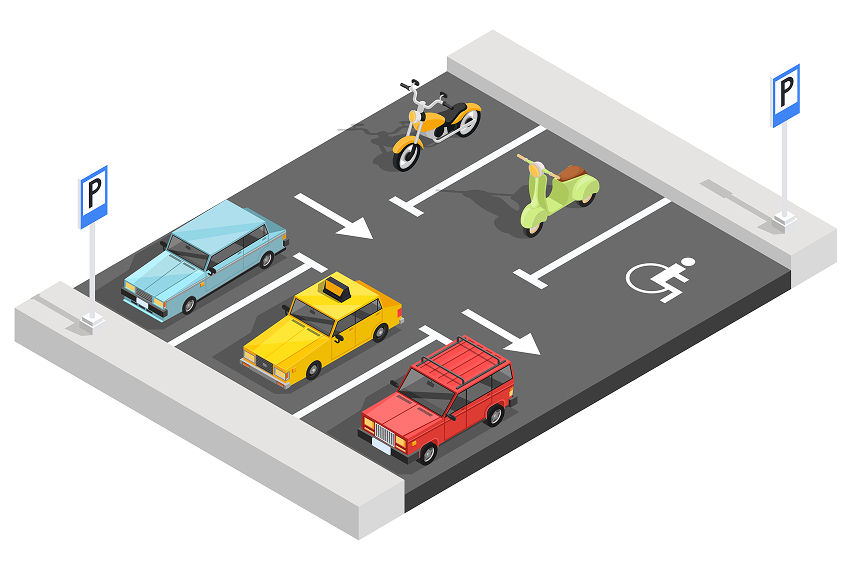
It is a common scenario wherein you pick a legal paper and struggle to make sense of it. The same is the case with a car insurance policy. Suppose you are a new car owner going forward to buy car insurance or a seasoned one on the task of renewing the policy. In that case, it is crucial to understand what the policy says, as it is the only piece of paper that will take care of your financial burden after an accident or any uncertain event involving your car.
With this article, our goal is to eliminate the ‘What does that mean?’ phrase that you would surely say after reading the confusing jargon in your policy. Remember, having an understanding of these terms is essential if you want to save yourself from any unpleasant surprises at the time of filing a claim.
We insist that every Filipino car owner must know these important car insurance terms, as it will save them time, money, effort, and stress. Don’t worry. Here, you’ll find no fancy or complicated language; everything is explained in simple ways.
Car insurance in the Philippines
To be able to understand car insurance terms better, it is advisable to first know that car insurance is a contract involving two parties, the car owner and the insurance provider. The former pays a monthly premium in exchange for financial coverage from the latter.
Do you need car insurance? If you are a car owner in the Philippines, you are legally bound to get your vehicle insured. This will guard your car from uncertain events like accidents, theft, riots, etc. Thus, offering you the ultimate peace of mind.
What is the most basic car insurance to have in the Philippines? A Filipino car owner must, without fail, get Compulsory Third Party Liability (CTPL) insurance, this one is mandatory by law, required for car registration at the LTO, and covers third-party injury/death.
Anything else, some recommendations? If your budget permits, try getting comprehensive insurance too; it is highly helpful as it has a wide coverage scope. Plus, if you live in a flood or typhoid-prone area, Acts of Nature coverage is highly recommended.
 Photo from coverlink
Photo from coverlinkCar insurance providers?
The car insurance market in the Philippines is a thriving one with several companies offering amazing plans at competitive rates. Here is a list of top car insurance providers you could consider -
- Malayan Insurance Company, Inc.
- BPI MS
- Perla Compañía de Seguros, Inc.
- Prudential Guarantee and Assurance, Inc.
- SGI Philippines General Insurance Company, Inc.
- Fortune General Insurance Corporation
- Mercantile Insurance Company, Inc.
Important car insurance terms you need to know
Here’s the list of the most common and essential car insurance terms you should know, and you’ll get to see them in your policy papers.
Policyholder - It refers to the person who owns the insurance policy, whose name reflects on the policy papers, and he/she is the point of contact for the insurance provider. This will be the one making monthly payments and filing claims when needed. So, essentially you!
Premium - It is the amount the policyholder/you will pay to the insurance company to keep the policy active. It can be a monthly or yearly payment, depending on the terms.
Deductible/Participation fee - It refers to the fixed amount of money which the policyholder needs to pay before the benefits of the insurance kick in and cover the rest of the costs.
Coverage limit - It is the maximum amount the policyholder will receive from the insurance company as claimed.
Third-Party - It refers to the other party, i.e., driver or pedestrian, involved in the accident other than the policyholder and passengers in his/her vehicle.
 Photo from HT
Photo from HTLiability Insurance/CTPL - It is one of the primary car insurance policies in the Philippines. It is mandatory by law and ensures that the policyholder can financially compensate the third party for injuries caused by their negligence.
Comprehensive Insurance - It is an optional but highly recommended insurance coverage that offers financial protection to the policyholder’s vehicle. It offers coverage to the insured vehicle against damages caused from collision or non-collision incidents like fire, theft, riots, vandalism, natural disasters, animal collision, etc.
Unnamed Driver/Passenger Personal Accident Coverage - It offers financial coverage to the driver and passenger in case of an accidental bodily injury and/or death, while riding in, boarding or alighting from the insured vehicle. It also covers partial and permanent disablement.
Roadside Assistance Insurance - It is a specific coverage that offers the policyholder emergency services like towing, tire change, jump-starting a dead battery, fuel delivery, and lockout assistance. The service is just a phone call anytime a policyholder encounters an unexpected breakdown or emergency.
Acts of God/ Act of Nature - This coverage offers financial shield to the policyholder’s car against non-human and non-mechanical damage, the ones caused by natural phenomena. Natural disasters typically covered by Acts of God insurance - typhoon, earthquake, flood, landslide, tsunami, and volcanic eruption.
Exclusion - It refers to the financial coverage that your policy does not provide financial protection against. It is important for a policyholder to be aware of them, to avoid surprises later. Some common exceptions include - personal property (items inside the car), driving under the influence of drugs/alcohol, and fraudulent and malicious activities.
No Claim Bonus (NCB) - It refers to a discount or reward that an insurance provider offers to the policyholder for not claiming during the coverage period or for a certain amount of time.
Endorsement - It refers to the act of a policyholder wanting to make a change in the existing car insurance policy. Changes may include revision or updation of information related to the car, policyholder contact data, or increasing coverage.
Insured Declared Value (IDV) - It refers to the price of the policyholder’s car in the market as per the car insurance provider. It plays a key role in determining the policy premium.
Policy Term - It refers to the duration of time that a policy is in effect, covering the policyholder’s car. It is the same period during which the insurance company is obligated to offer coverage and the policy holder is responsible to pay premium.
Total Loss - It refers to a situation where the damage to the insured vehicle is extensive, so much so that the cost of repair exceeds its IDV (Insured Declared Value). It is usually triggered by a severe accident, theft, or damage due to a catastrophic event. Typically, it is declared when the repair cost exceeds 75% of the IDV.
Indemnity - It refers to the entire purpose of a car insurance policy, i.e., a contract wherein the policyholder pays a premium in exchange for financial compensation in the event of loss or damage. All this to make sure, the policyholder ends up in the same financial situation as before.
 Photo from Freepik
Photo from FreepikClaim - It refers to the request made by the policyholder to the insurance company to get financial compensation after an accident or loss.
Lapse - It refers to the event when the car insurance policy is no longer active. Meaning, once the policy gets lapsed, the policyholder drives without coverage, which is illegal.
Add-on/Rider - An add-on refers to additional coverage a policyholder gets from the insurance company for enhanced protection of the vehicle. These specific coverages come at an extra cost, and some popular ones include - Roadside Assistance, Personal Effect Coverage, Loss of Use, Riots, Strikes, & Civil Commotion, Pet Injury Coverage, Lost Wage Recovery, and Legal Assistance.
Key benefits of understanding insurance terms
If you are a car owner, then knowing and understanding key insurance terms will prove beneficial for you at different steps of the process. For starters, you’ll be asking the insurance provider all the right questions that will help you compare different policies. For instance, you can ask about the inclusion of Act of God coverage, deductible, and provision of no-claim bonus.
Also, at the time of finalising the insurance provider, you’ll be able to read the fine print better, i.e., beyond the bold headings. You’ll have a clear understanding of what’s included and what’s not, and other key details.
Bottom line
Be true to yourself and tell us how many of these terms you knew beforehand? Not many of us suspect, and therefore it becomes essential to familiarise yourself with these car insurance terms. Why? You’ll be able to negotiate better, understand the policy better, and there will be no miscommunication. In short, you’ll be able to choose a good insurance policy and handle claims confidently.
It doesn’t matter if it's your first car insurance policy or you are renewing it, it’s always better to have a thorough understanding of what’s stated in the policy.
FAQs
What is the relation between car insurance premiums and deductibles?
Premium is the monthly amount you pay the insurance provider for its coverage, while deductible is the amount you pay from your pocket after an accident, before the claim kicks in. So, the higher the deductible, the lower the premium and vice versa.
Can I claim my insurance policy if someone else was driving my car?
It depends on your insurance provider and your policy terms. Most polices offer coverage when the car is driven by a listed authorised driver.
I live in a flood-prone area. What car insurance coverage shall I get?
In addition to CTPL and comprehensive insurance, we’d suggest you opt for ‘Acts of God’ coverage. It offers financial protection against natural disasters like floods, earthquakes, typhoons, etc.
Are passengers covered in a car insurance policy?
Yes, given that your car insurance policy includes a Personal Injury Protection (PIP) plan. Usually, this plan is part of the comprehensive insurance policy, however, it is recommended to check with your provider.
What if my car gets stolen? How will car insurance help?
If you have a comprehensive car insurance policy, then you are safe. As this type of policy goes beyond covering accidental damage and includes vandalism, natural disaster, theft, etc. So, you will be compensated.
What about my car’s accessories? Are they covered by my insurance policy?
Usually comprehensive car insurance policy does not offer coverage for car accessories, unless you declare them and make necessary modifications in the policy.










